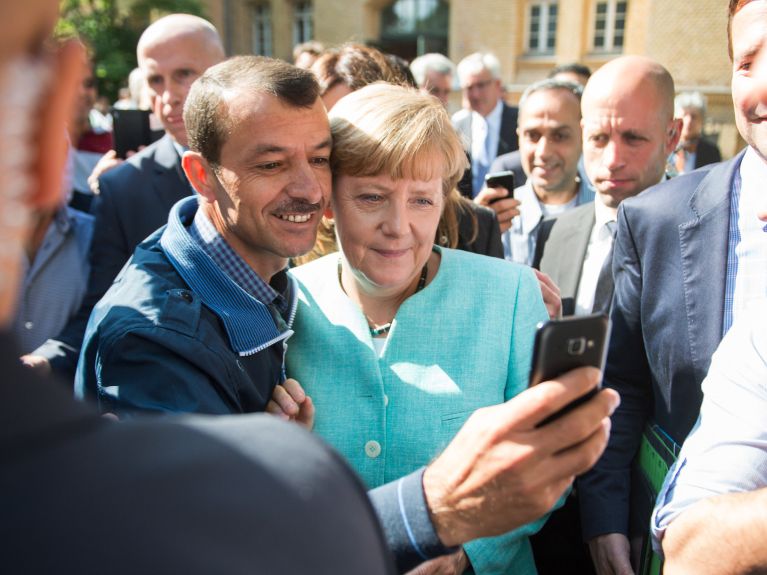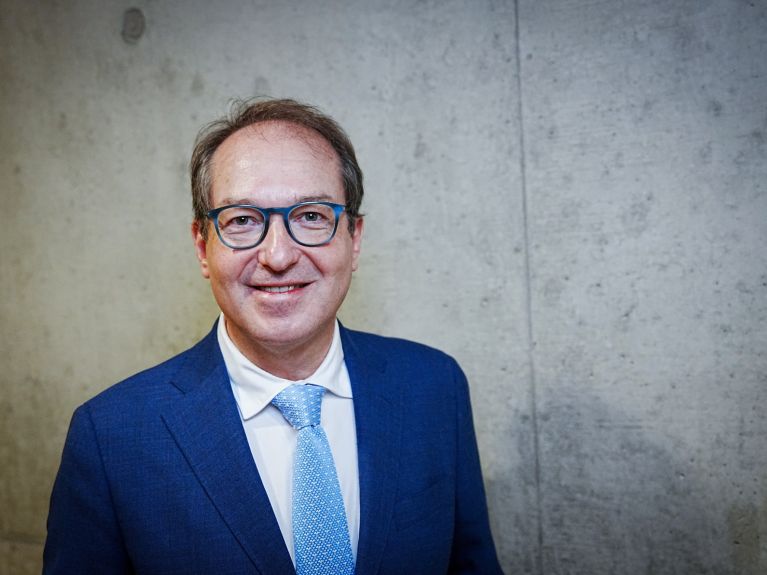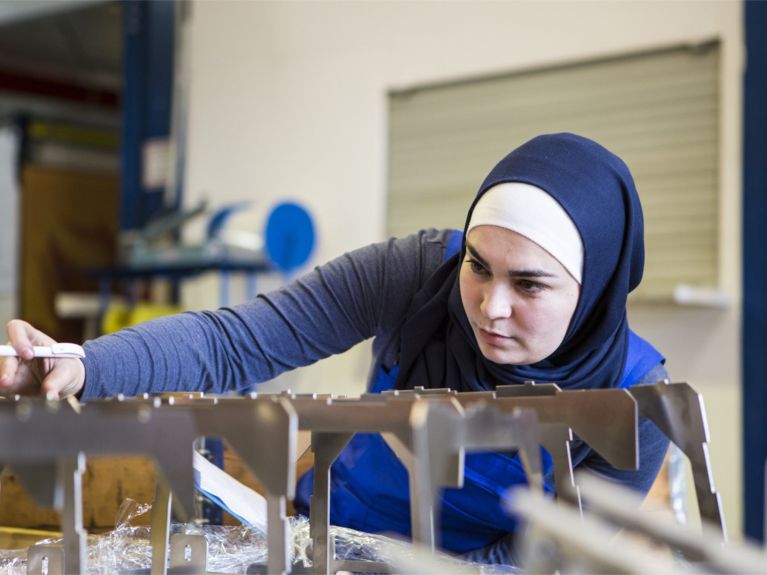Germany remains a country of immigration - with clear rules
Germany’s new Federal Government wants to noticeably reduce irregular migration and accelerate processes - while at the same time specifically encouraging skilled immigration.

Migration is an integral part of Germany’s post-war history. In the 1950s and 1960s, “guest workers” recruited from Italy, Turkey and many other countries made a key contribution to Germany’s growing prosperity. Later, refugees from the Balkan wars, the Middle East and Africa increasingly left their mark on German society. In 2024, 25.2 million of the country’s total population of around 83 million had a migrant background. A good 63 percent of the total number of people with a migrant background immigrated to Germany themselves, while nearly 37 percent were born here.

How has Germany overcome the challenges posed by migration?
The summer of 2015 is seen as a turning point: the chancellor at the time, Angela Merkel, decided not to close the borders to the thousands of refugees who wanted to come to Germany via Hungary. Merkel’s famous - and still controversial - claim that “we can manage this” came to symbolise a policy of openness, which led to significantly higher numbers of refugees.

Today, ten years on, the picture is somewhat more nuanced. On the one hand, Germany has indeed managed a great deal. The huge majority of refugees have integrated into society, learnt German and found work and a place to live. Around a fifth of those who sought asylum at the time - around 180,000 people - now have German citizenship. According to the Institute for Employment Research (IAB), around 64 percent of the refugees who came to Germany in 2015 had a job in 2024, many of them in regular full-time employment - a figure which is only slightly below Germany’s overall employment rate of 70 percent.
On the other hand, the growing migration did entail some enormous challenges: a considerable proportion of the refugees live on state benefits. Municipalities, local authorities and departments complain that they have scant resources and are overworked. In many schools the majority of children have a migrant background and often only a poor knowledge of German.
The population has conflicting views of this development. In surveys, many people say that the high level of irregular migration poses too great a burden and feel that it should be limited. Not everyone sees cultural differences as enriching everyday life; some even feel threatened and fear insufficient integration, rising crime and the risk of terrorism. At the same time, a majority is in favour of facilitating the legal immigration of skilled workers. Migration thus sparks both hopes and fears.
Which course is the new Federal Government following in migration policy?
The government, led by Federal Chancellor Friedrich Merz, is learning lessons from the experiences of past decades. “Germany is a country of immigration. That was the case, that is the case, and that will remain the case,” stresses Merz - though the conditions for and rules governing migration are to become stricter and clearer. Interior Minister Alexander Dobrindt sums up the government’s approach: “We welcome people from other countries. We offer the prospect of long-term residence for skilled workers, and temporary protection for people facing persecution. Humanity and order means managing and regulating immigration to Germany in equal measures.”

This shift in policy is reflected in a number of concrete changes and political projects:
- border controls and rejections at the borders are to remain in place, in agreement with Germany’s European neighbours, as a flexible instrument until such time as the new Common European Asylum System (CEAS) and the EU’s external border protection measures are functioning properly.
- The German government wants to extend the list of safe countries of origin by legislative decree (without the consent of the Bundesrat, which was previously necessary), initially to include Algeria, India, Morocco and Tunisia. This intended change is currently still being discussed in the Bundestag.
- The right of family reunification for beneficiaries of subsidiary protection was suspended for two years in July 2025 – i.e. for those who do not meet all the criteria to qualify for refugee status but cannot be deported for humanitarian reasons.
- The fast-track naturalisation option after just three years will be withdrawn. Instead, only those persons who have lived permanently and lawfully in Germany for at least five years will be able to apply for citizenship. A draft law to this effect is currently being debated by the Bundestag’s Committee on Internal Affairs.
- Asylum seekers who have had their application rejected are to be deported. Over 20,000 people were already deported in 2024, significantly more than in the preceding years. Criminals are to be consistently deported.
- At the same time, the legal immigration of skilled workers is to be stepped up: a central online “work and stay agency” is planned in order to accelerate and simplify the processes involved.
Western Balkans Regulation and European responsibility
The Western Balkans Regulation is designed to enable people from Albania, Bosnia and Herzegovina, Kosovo, Montenegro, North Macedonia and Serbia to come to Germany legally to work, thereby relieving the burden on the asylum system. The new coalition is planning to halve the quota again to 25,000 people per year.
In addition, the European dimension also plays a central role. The reform of the Common European Asylum System (CEAS) provides for harmonised procedures at the EU’s external borders from 2026 – covering everything from registration and fast-track processes to deportation. The German government is also looking into the option of a “third-country solution” that would see asylum procedures transferred to non-EU countries.
To put it simply, the new policy will increase protection of the EU’s external borders, involve closer cooperation with countries of origin and transit, and deal more toughly with traffickers.

Skilled workers urgently needed
Despite all these efforts to contain irregular migration, Germany remains reliant on the legal immigration of skilled workers. Demographic trends are increasing the pressure: there are already hundreds of thousands of job vacancies in many areas, such as nursing, the skilled
crafts and trades, and IT. The Institute for Employment Research (IAB) estimates that Germany, in order to stabilise its employment market, needs around 400,000 immigrants per year who remain in the country permanently.
The Federal Government believes that new partnerships with third countries, simplified processes and better dovetailing of language, vocational training and work are the best way to achieve this. In other words, Germany will remain a country of immigration, albeit one with clear rules.


